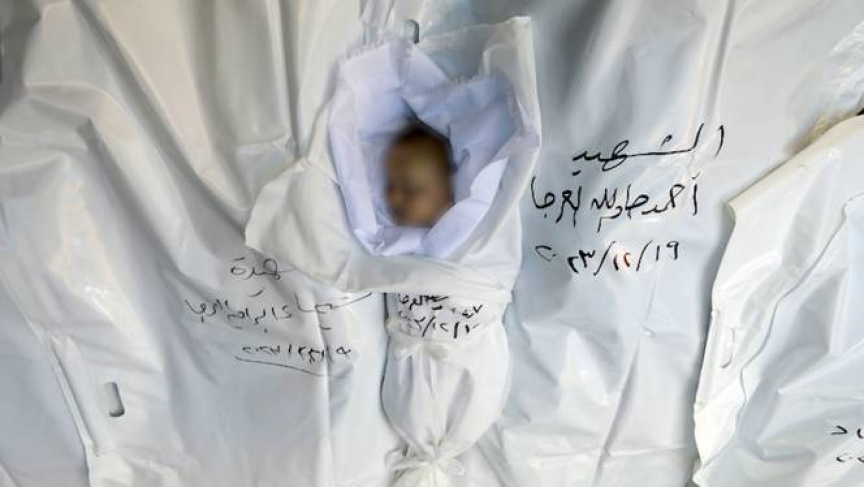
Israel's war on besieged Palestinians in Gaza has killed more than 20,000 Palestinians, health officials in Gaza said, as they released new toll of the war and Israel expanded its invasion and gave an ultimatum to tens of thousands more Palestinians to flee their homes.
The killings, most of them children and women, in Gaza amount to nearly 1 percent of the territory’s pre-war population — the latest indication of the 11-week-old Israeli aggression's staggering human toll.
Israel's aerial and ground invasion has been one of the most devastating assaults in recent history, displacing nearly 85 percent of Gaza's 2.3 million people and levelling wide swaths of the tiny blockaded enclave.
More than half a million people in Gaza — a quarter of the population — are starving, according to a report from the United Nations and other agencies.
After many delays, the UN Security Council adopted a watered-down resolution on Friday calling for immediately speeding up aid deliveries to desperate civilians in Gaza.
The United States won the removal of a tougher call for an "urgent suspension of hostilities" between Israel and Hamas resistance group.
It abstained from the vote, as did Russia, which wanted a stronger language.
Israel issues new ultimatum to besieged Palestinians
The US also negotiated the removal of language that would have given the UN authority to inspect aid going into Gaza, something Israel says it must do to ensure material does not reach Hamas.
Hamas said in a statement that the UN resolution should have demanded an immediate halt to Israel's assault, and it blamed the United States for pushing "to empty the resolution of its essence" before Friday's Security Council vote.
UN Secretary General Antonio Guterres, meanwhile, reiterated his longstanding call for a humanitarian ceasefire.
"The violations of international humanitarian law [Hamas October 7 surprise blitz] can never justify the collective punishment of the Palestinian people, and they do not free Israel from its own legal obligations under international law," the secretary general said.
Israel, shielded by the United States, has resisted international pressure to scale back its assault.
The military has said that months of fighting lie ahead in southern Gaza, an area packed with the vast majority of the enclave's 2.3 million people, many of whom were forced to flee Israeli bombardment.
The Israeli military said late on Thursday that it is sending more ground forces, including combat engineers, to Khan Younis to target Hamas fighters above ground and in tunnels.
On Friday, it forced tens of thousands of residents to leave their homes in Burej, an urban refugee camp, and surrounding communities in central Gaza, suggesting a ground assault there could be next.
Mustafa Abu Taha, a Palestinian farm worker, said many areas of his hard-hit Gaza City neighbourhood of Shijaiyah have become inaccessible because of massive destruction from airstrikes. "They are hitting anything moving," he said of Israeli forces.
Rising death toll, hunger
Gaza’s Health Ministry said on Friday that it has documented 20,057 deaths in the fighting and 53,320 wounded.
It has previously said that roughly two-thirds of the dead were women or minors. Israel’s military claimed 139 of its soldiers have been killed in the ground invasion.
It alleges it has killed thousands of Hamas fighters, including about 2,000 in the past three weeks, but it has not presented any evidence to back up the claim.
For most of the war, Israel also stopped entry of food, water, fuel and other supplies except for truck convoys of aid from Egypt, which cover only a fraction of the needs in Gaza.
Because of insufficient aid entering Gaza, the extent of starvation has eclipsed the near-famines of recent years in Afghanistan and Yemen, and the risk of famine is "increasing each day," Thursday's UN report said.












